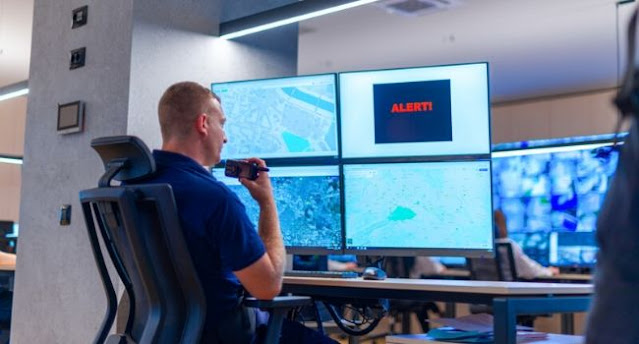Tips to keep Business safe from Cybercrime | Antivirus Software


Most malware today is smart enough to avoid cluttering your desktop with pop-up windows like it was many, many years ago, but that doesn't mean that your computing power won't suffer. Rather, with crypto mining on the rise these days, your PC will inevitably run slower if it has caught a malicious infection.
If you have noticed a drop in performance during startup or during normal use, use the key combination Ctrl + Alt + Del to open your Task Manager. Click the Processes tab(this should be opened by default) and check which programs have the highest consumption of CPU performance and memory. Some software, like high-end games, tends to have the highest resource consumption. Most apps, however, shouldn't - so if you notice any strange software draining your processing power, google it to find out if it's actually a Trojan. If so, then remove it, and if not, you should most likely remove the software anyway.
Get an antivirus
It should go without saying, but the best way to identify malware - and avoid infection in the first place - is to run a strong and reliable antivirus like AVG AntiVirus FREE. It should be noted at this point that Trojans are usually better at staying clandestine than most other types of malware, as they go into much more effort to keep them hidden and out of sight. In comparison, viruses spend significantly more energy on reproducing themselves, which makes them much more visible.
So if you are concerned that a stubborn Trojan is hiding in your device, it is advisable to run a start-up time check , which is carried out when the PC boots up - and which ensures that it is no longer safe to hide the Trojan. It is guaranteed to work, and as luck would have it, AVG Free Antivirus has such a start-time check function.
How can I avoid a Trojan horse infection?
The first and most logical step is to install an antivirus that will intercept and stop most Trojans before they can even get on your PC. However, since the human component is the weakest link in the cybersecurity chain, you too must do your part if you are to stay completely safe.
Be careful with downloads
The most important thing is that you exercise caution with any content you attempt to download online and beware of phishing attempts. Malware is known to have sneaked into even the safest online marketplaces in the past and bypassed the strictest anti-spam filters, and even when inevitably detected, it usually manages to get a few people in before that to lure the trap. So in order not to open the gates like the inhabitants of Troy in mythology to bring their own downfall into their home, you should pay attention to the following warning signs:
• Does it sound unrealistic?
• Does it sound personal, but personal identifiers are missing?
• Did it come from nowhere, so to speak?
• Was it sent from an email address with a public domain name? (@ yahoo.com, @ gmail.com etc.)
• Does it have an urgent message?
• Is something strange to you or are there any noticeable typing errors?
• Are the links not secured with HTTPS? Are you misspelled? Or do you contain special characters?
• Does the offered file have an unusual file extension? (For example, should it be a "document" but it is actually a ZIP file?)
• Are you downloading content from a third party or a third party site?
• Are there any reviews? Do the good testimonials seem suspicious to you or do they all sound too similar?
• If it's an app, was it recently released? Is it an app that you think was released a long time ago? (For example, was an online banking app released just a few hours ago?)
If the answer to any of these questions is yes, there is a good chance that a hacker is trying to launch a phishing attack on you. However, this is not the only way your PC can be infected with a Trojan horse.
Avoid pirating files and media
No matter what you've heard, pirated software is by no means the preferred way for hackers to spread malware. However, that doesn't mean that pirated software is anywhere near secure. Every time you download a file from a stranger (or even a friend) on an Internet file-sharing platform, there is a risk that it is malware or that malware is smuggled into your PC with it.
How do I get rid of a trojan?
In case you have identified a Trojan using the methods above, you can manually get rid of it by manually deleting the file or application. However, there is no guarantee that it has actually been completely removed (it could still be nested in your PC as debris), but this is a good place to start. In fact, there are many types of malicious programs that will fight back - read our malware removal guide to find out more.
If you cannot find the Trojan, but you still suspect that your PC is infected, restoring an old backup will ensure that it is completely removed. And if even that fails, factory reset is still a good final option. Of course, nothing comes close to antivirus in terms of speed and convenience. You have the option of performing a regular scan or, if necessary, a start-time check in order to detect stubborn Trojans. Just make sure you have a robust antivirus such as B. Use Free antivirus which does the hard work for you.
Comments
Post a Comment